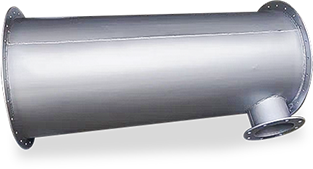
As a procurement manager, evaluating suppliers and negotiating contracts are essential tasks for optimizing cost savings and obtaining a competitive advantage for your company. Offshoring provides a promising avenue to accomplish these goals, but it also entails distinct risks and challenges. This blog aims to explore efficient approaches that focus on evaluating suppliers and conducting contract negotiations with a specific emphasis on offshoring initiatives.
Supplier Evaluation
To initiate an offshoring initiative, the first step involves identifying the most suitable supplier. This requires evaluating potential suppliers based on factors such as their experience, expertise, and reputation. Here are some recommended approaches for supplier evaluation:
- Conduct thorough research: Utilize online directories, industry associations, and referrals to identify potential suppliers. Carry out comprehensive research on their backgrounds, experience, and track record.
- Assess capabilities: Evaluate suppliers based on their technical expertise, quality control processes, and ability to meet deadlines. Consider factors such as infrastructure, resources, and cultural compatibility with your organization.
- Check references: Speak with previous clients to gather insights into their experience working with the supplier. Seek feedback regarding communication skills, responsiveness, and overall performance.
- Visit facilities: Plan a visit to the supplier’s facilities to observe their operations personally. This will provide a deeper understanding of their processes, infrastructure, and quality control measures.
- Consider cost: While cost savings are a primary driver for offshoring, it is important to not solely focus on it. Look for a supplier that can offer competitive pricing without compromising quality.
Contract Negotiation
When you have found an appropriate supplier, the subsequent crucial stage involves engaging in contract negotiation to establish the terms and conditions of the offshoring project. This step holds immense significance in the offshoring process as it sets the expectations and responsibilities for both parties involved. Here are some recommended approaches for effective contract negotiation:
- Clearly define project objectives: Precisely outline the project’s goals, including the scope, deliverables, timelines, and quality standards. This ensures a shared understanding between both parties.
- Specify roles and responsibilities: Clearly define the responsibilities of each party, including communication channels, reporting requirements, and escalation procedures. This promotes effective collaboration and avoids confusion.
- Address legal and regulatory considerations: Ensure compliance with relevant laws and regulations in both the home country and offshore location. Take into account intellectual property rights, data privacy, and confidentiality agreements to protect interests and minimize legal risks.
- Establish pricing and payment terms: Negotiate a fair and competitive pricing structure, considering project complexity, required resources, and market rates. Clearly define payment terms aligned with project milestones for a mutually beneficial financial arrangement.
- Include a termination clause: Incorporate a well-defined process for contract termination if either party fails to fulfill their obligations. This clause helps manage offshoring risks and provides an exit strategy if needed.
Conclusion
Offshoring can offer significant cost savings and competitive advantages for organizations, but it also requires careful evaluation of suppliers and negotiation of contracts. By following best practices for supplier evaluation and contract negotiation, purchasing managers can ensure that offshoring projects are successful and deliver the desired results.
Karkhana.io has a vetted network of 400+ certified suppliers that have been developed across India for processes such as CNC Machining, Sheet Metal, Fabrication, 3D Printing, Injection Moulding & Vacuum Casting. By leveraging this vast network, customers can streamline their manufacturing requirements for small-batch manufacturing, large-volume manufacturing, product assembly, and product localization.
Karkhana.io is in a unique position to help companies ranging from small startups to established enterprises by providing them with not just production capacity but tailor-made solutions for their every need. With expertise in not just manufacturing processes and materials, Karkhana.io is committed to building long-term, sustainable partnerships with customers for all their production requirements.
If you are looking for an offshoring partner to scale up production and streamline your supply chain, get started now by filling out the form below.









